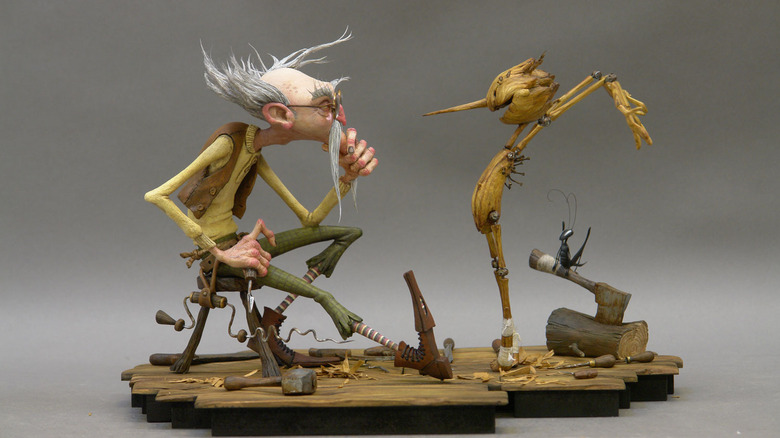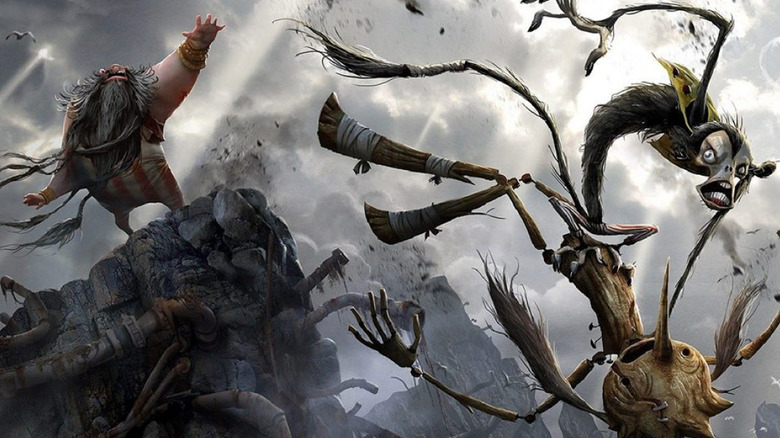Guillermo Del Toro's Stop-Motion Pinocchio Movie Will Explore Heavy Themes About Humanity
From a ghost story set against the closing months of the Spanish Civil War to a romance amid Cold War-era American patriarchy, Guillermo del Toro does not let his movies' settings go to waste. His latest is "Nightmare Alley," an adaptation of William Lindsay Gresham's 1946 novel of the same name, starring Bradley Cooper, Cate Blanchett, Rooney Mara, and Toni Collette. The film focuses on a carnival worker (Cooper) who hooks up with a shady psychiatrist (Blanchett) amongst the shadowy world of show business.
As that enjoys its current run in theaters, del Toro keeps his plate full with another feature, a fantasy. This time, however, the "Hellboy" director is stretching his storytelling muscles for a stop-motion musical. "Pinocchio" is co-directed with Mark Gustafson ("The PJs") and tag-teamed with The Jim Henson Company as well as Netflix Animation for what the filmmaker calls his passion project — a dark adaptation of Carlo Collodi's 1883 Italian novel, "The Adventures of Pinocchio."
On their official Twitter page, Rotten Tomatoes shared a behind-the-scenes chat with Guillermo del Toro on "Nightmare Alley," his upcoming stop-motion animated film "Pinocchio," and the shared magic between the two tales. Check out the video below.
'Pinocchio is About What Makes a Human a Human...'
Guillermo del Toro's new #Pinocchio stop-motion musical will be set during the rise of Mussolini in fascist Italy. pic.twitter.com/nkcrbkI3ol
— Rotten Tomatoes (@RottenTomatoes) December 29, 2021
Against a backdrop of Gris Grimly-inspired images from "Pinocchio" (of which Grimly also serves as executive producer), del Toro explains:
"[Nightmare Alley and Pinocchio] do have parallels. Obviously, 'Pinocchio' has a big section in a carnival, and there's strange little echoes between the two. And 'Pinocchio' deals with a different thematic. 'Pinocchio' is about what makes a human a human, and what makes a human a puppet, or a puppet a human. Because it's set during the rise of Mussolini in fascist Italy, so it's a really interesting thematic exercise, that one."
It can pay off well to use fairy tales the way they've always been used, to reflect fears. Oz Perkins' 2020 take on "Gretel & Hansel" distills the inner confusion and external hostilities of womanhood into a beautiful and macabre meditation, making it one of the best horror movies of 2020. Del Toro has already played in this sort of sandbox before; as mentioned, "The Devil's Backbone" and "The Shape of Water" marry political commentary with the monstrous and the sublime. His debut feature, "Cronos," shows that as early as 1993, and the writer-director has had a penchant for finding the humanity in our monsters and emphasizing peril as part of children's worlds. It's only fitting that he gets to explore what it means to be a "real boy" with one of the creepiest fairy tales ever.

